Newmarket celebrates 350 years of horse racing
- Published
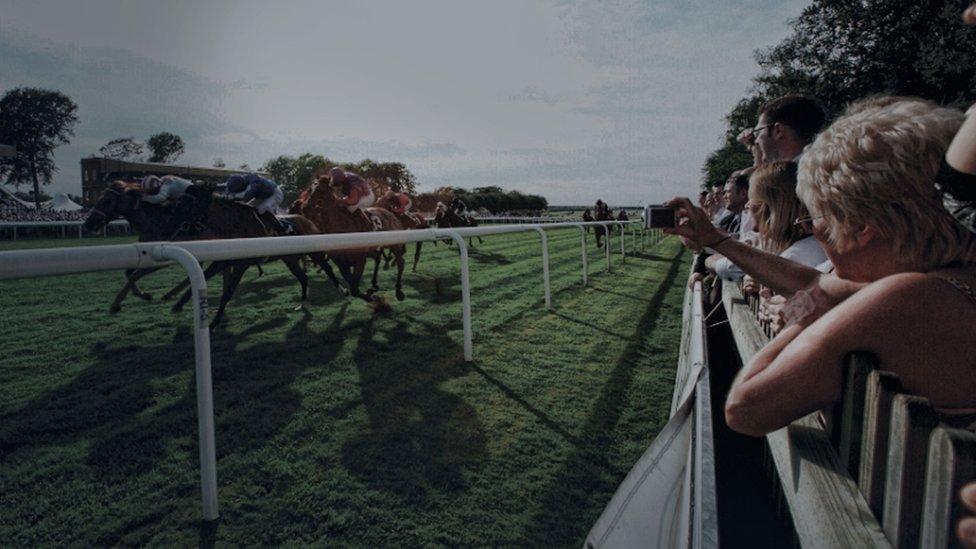
2006 to 2007: The July Course undergoes a £10m redevelopment
The headquarters of British horse racing, Newmarket, is celebrating its 350th anniversary. As it hosts the Guineas Festival this weekend, BBC News looks at some of the significant moments the world-famous sporting venue has witnessed over the years.
Three and a half centuries ago, King Charles II journeyed to a small town in Suffolk. He commanded a course be created there for a race in his name. Modern horse racing was born.
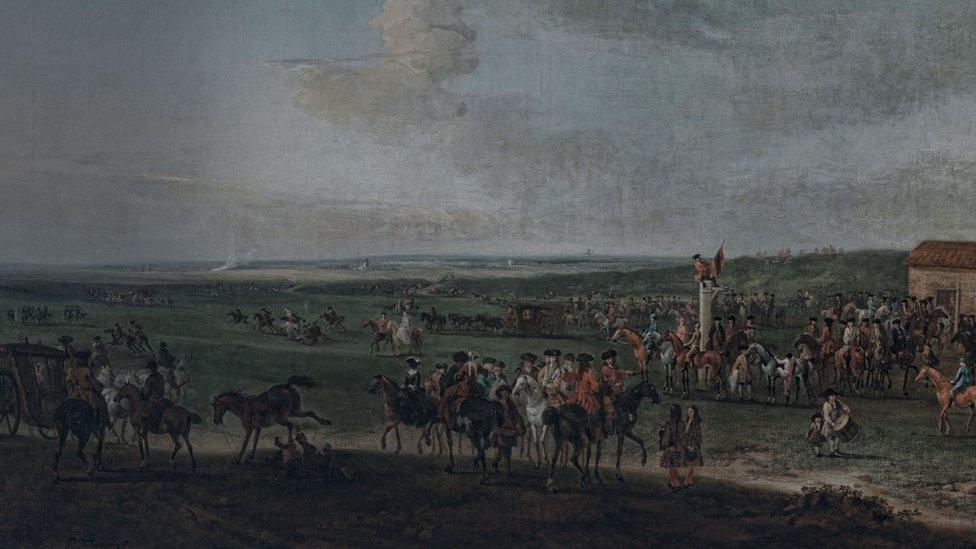
1666: Charles II returns to Newmarket, with the spring and autumn meetings becoming annual fixtures
The king's three-mile, six furlong Round Course, the first "modern" racecourse, was first run in 1666.
It marked the start of Newmarket's reputation as a horse racing Mecca, something that has endured even through two world wars.
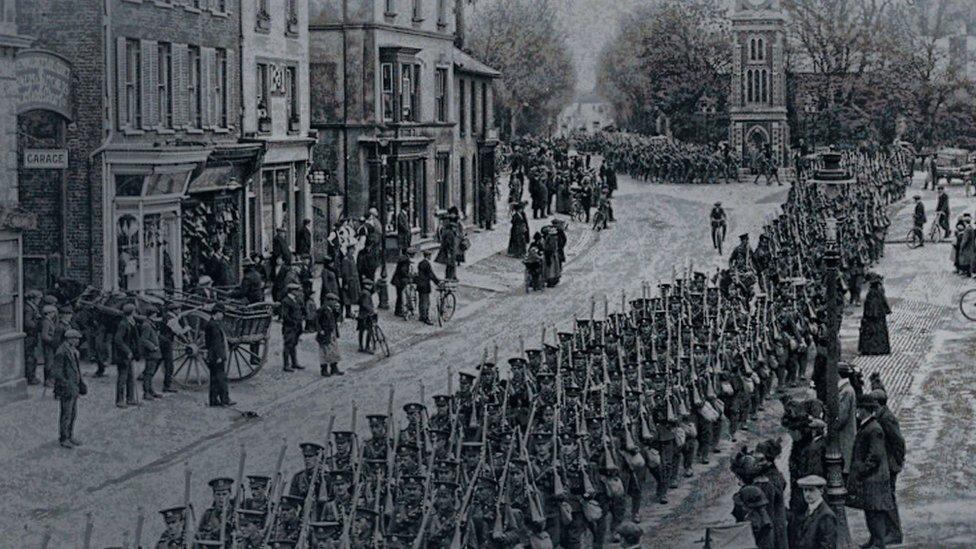
1914: Racing continues at Newmarket throughout World War One on both main racecourses, with Newmarket becoming an official airbase
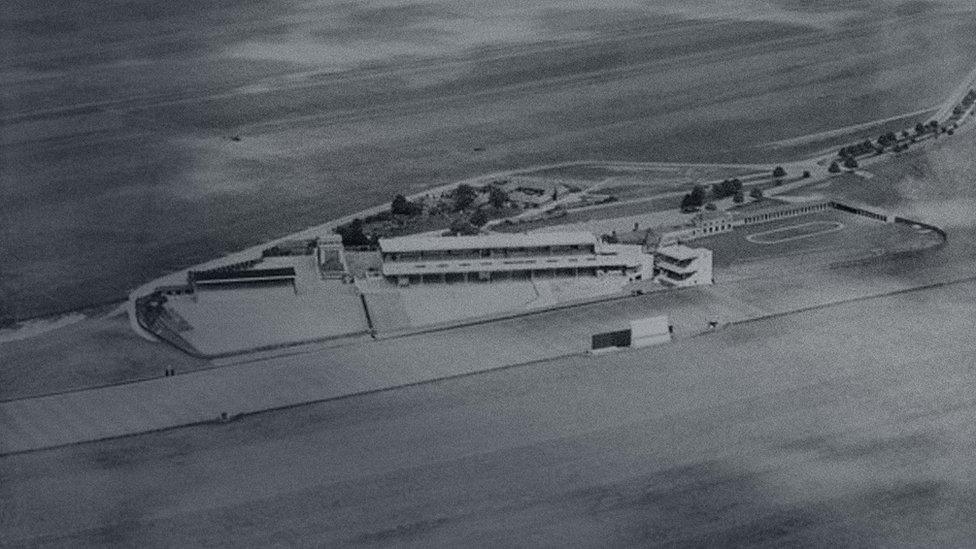
1939: Rowley Mile becomes an official Bomber Command airbase
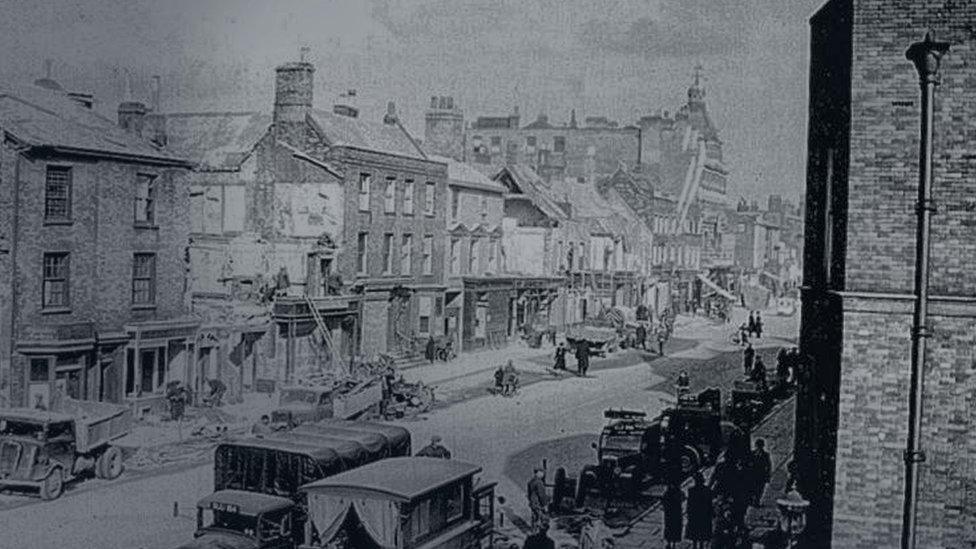
1941: Newmarket High Street is bombed
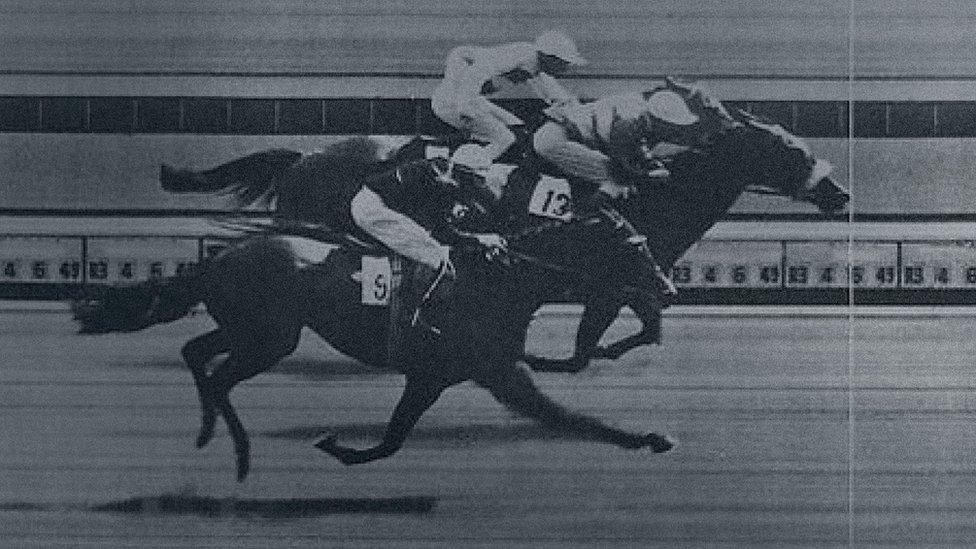
1949: A photo finish is used for the first time at Newmarket to determine the result of the 2,000 Guineas
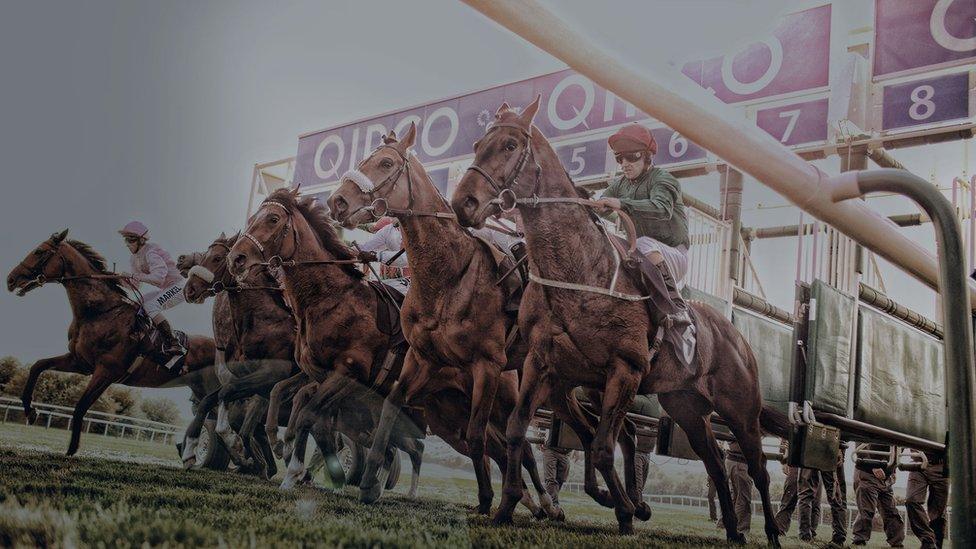
1965: Starting stalls are introduced for first time in Britain
John Berry, mayor of Newmarket, admitted that it was difficult to pinpoint exactly when racing began, although there were historical references before 1666.
He said: "After the Restoration, external it meant 350 uninterrupted years of racing, during which the town of Newmarket has been the undisputed headquarters of racing."
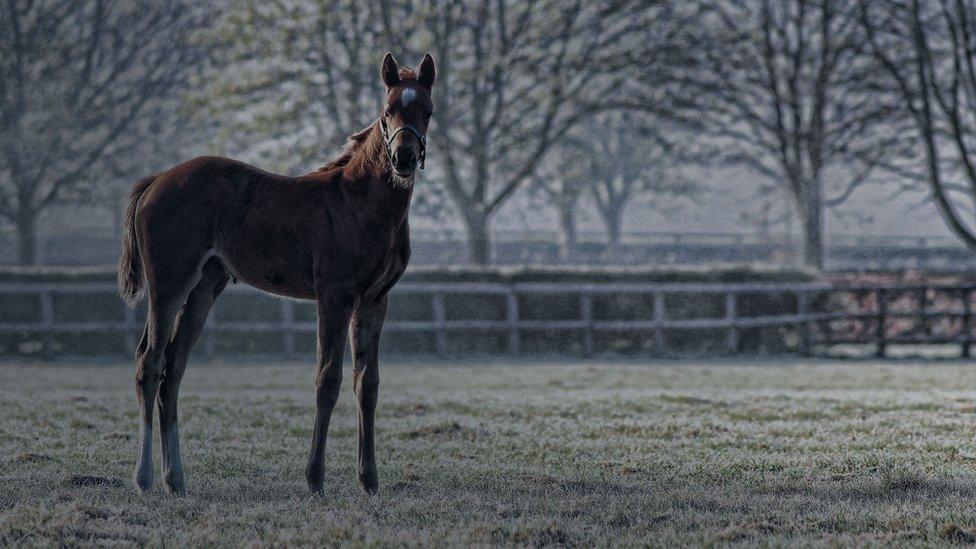
1967: The National Stud is officially opened
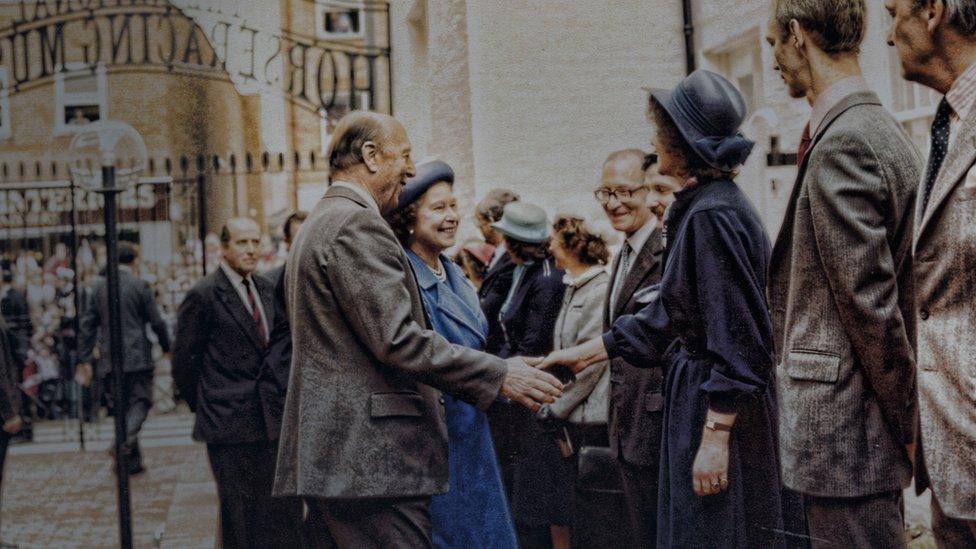
1983: The Queen opens the National Horseracing Museum
The three-mile Round Course is used for the Newmarket Town Plate. The race which, according to a law passed by King Charles II, must be run "for ever", has been staged every year since 1666.
The two Newmarket courses of the Rowley Mile and the July Course - to which the Queen is a frequent visitor - are much better known.
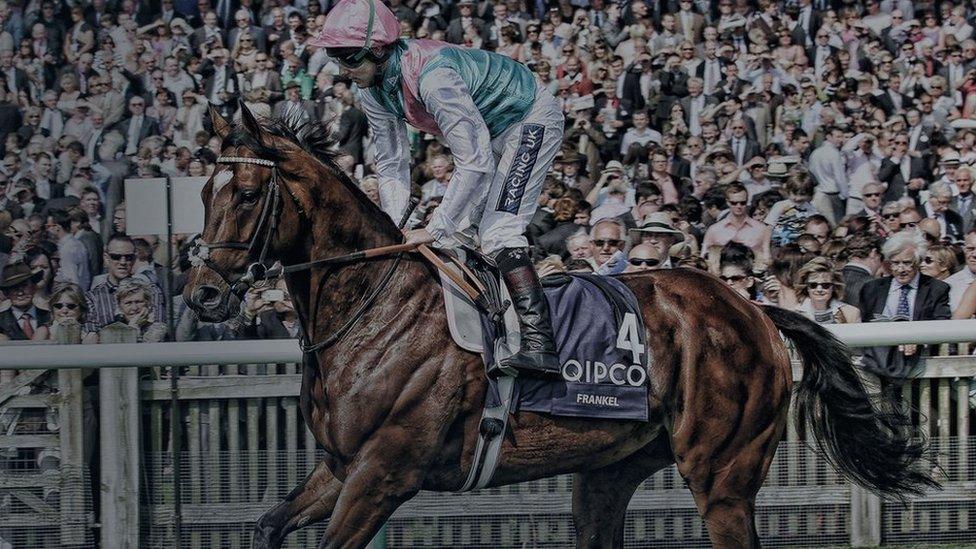
2011: Frankel wins the 2,000 Guineas and goes on to become the world's best thoroughbred racehorse
Newmarket is also home to the legendary racehorse Frankel, trained by the late Sir Henry Cecil.
Events to mark the 350th anniversary include a tandem Spitfire flypast from the nearby Imperial War Museum at Duxford and the reading of a specially-commissioned poem.
Amy Starkey, regional director, Jockey Club Racecourses East Region, said: "Newmarket's racing heritage is of international significance, and, with the world's spotlight upon us, we'll be marking this unique occasion with a series of special events and initiatives that involve 350 years of Newmarket making history."
- Attribution
- Published2 February 2016
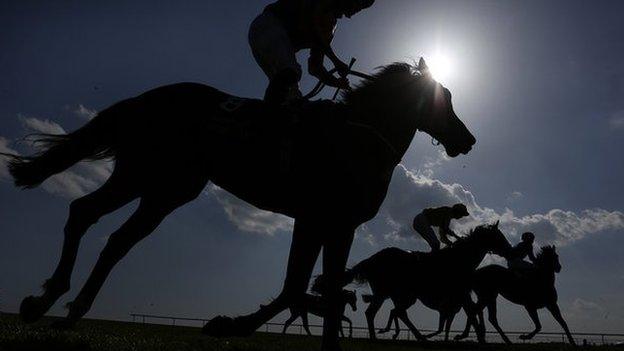
- Published26 June 2015
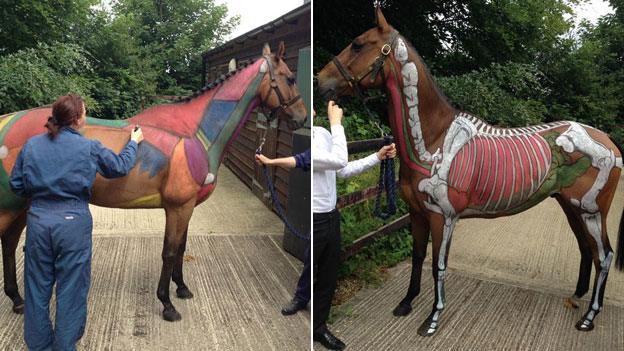
- Published21 January 2014
.jpg)